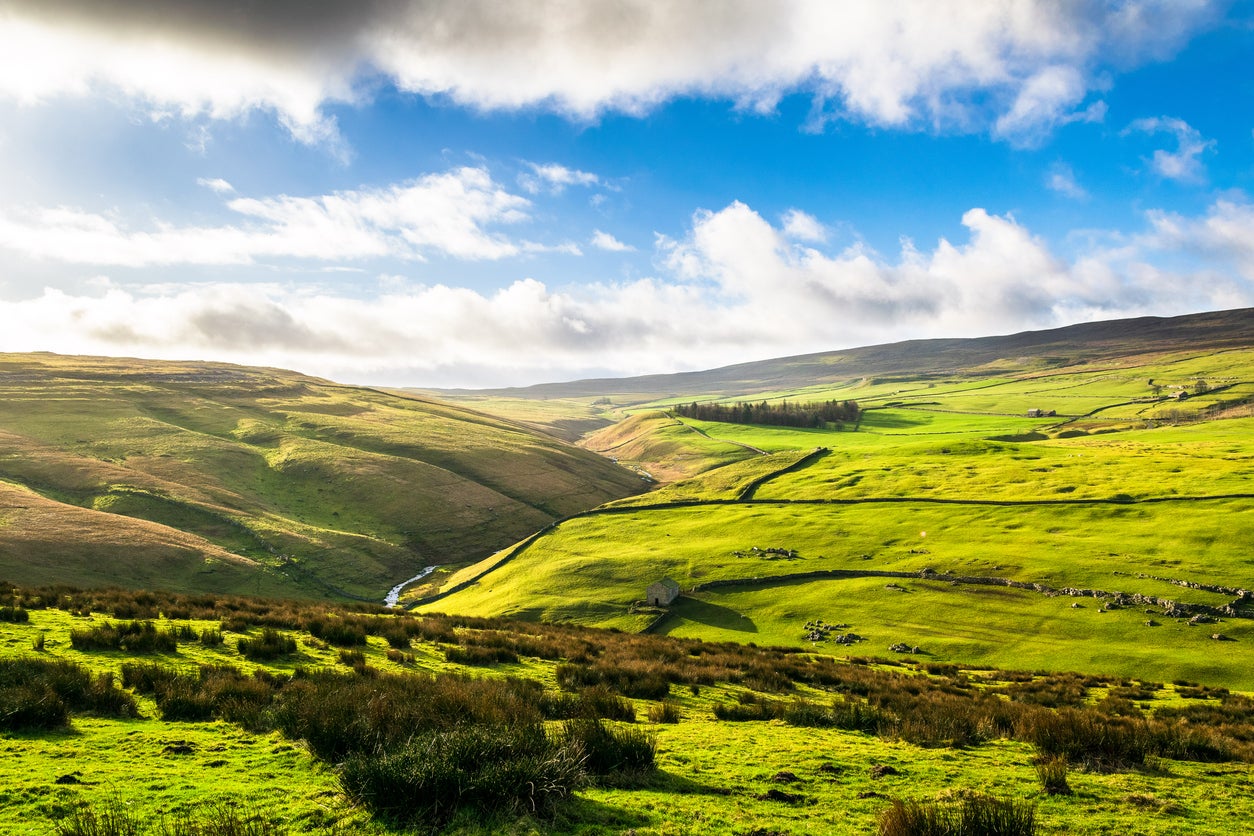UK one of the best places to survive a global collapse of society, says study
Researchers ‘quite surprised the UK came out strongly’

Your support helps us to tell the story
From reproductive rights to climate change to Big Tech, The Independent is on the ground when the story is developing. Whether it's investigating the financials of Elon Musk's pro-Trump PAC or producing our latest documentary, 'The A Word', which shines a light on the American women fighting for reproductive rights, we know how important it is to parse out the facts from the messaging.
At such a critical moment in US history, we need reporters on the ground. Your donation allows us to keep sending journalists to speak to both sides of the story.
The Independent is trusted by Americans across the entire political spectrum. And unlike many other quality news outlets, we choose not to lock Americans out of our reporting and analysis with paywalls. We believe quality journalism should be available to everyone, paid for by those who can afford it.
Your support makes all the difference.The UK would be one of the best places in the world in which to "restart life" in the event of global societal collapse, according to a study.
New Zealand topped the list while Iceland, Australia and Ireland also ranked highly.
Setting human civilisation in a “perilous state”, researchers set out to examine places that have favourable conditions for regenerating life if the world was to collapse due to an event such as a climate or financial disaster.
The team at Anglia Ruskin University's Global Sustainability Institute looked at a range of factors, including access to energy sources, climate, the availability of arable land and population density.
As an island separated from the Eurasian landmass, the UK scored highly in its ability to protect its borders from unwanted mass immigration.
The UK also scored well on the “self-sufficiency” analysis with its “abundant indigenous renewable and non-renewable energy sources, modern high-tech economy and large manufacturing capacity”.
New Zealand, in first place, scored particularly well on population and geographical location.
Countries were ranked on their ability to grow food, produce energy and control unwanted immigration. States with low population density and moderate climates ranked highest in the study.
Prof Aled Jones, one of the study's authors, said he didn't expect the UK to perform strongly but was not surprised to see New Zealand at the top of the list.
He told The Guardian: “We weren’t surprised New Zealand was on our list. We chose that you had to be able to protect borders and places had to be temperate.
“So with hindsight, it’s quite obvious that large islands with complex societies on them already [make up the list].”
Prof Jones added: “We were quite surprised the UK came out strongly. It is densely populated, has traditionally outsourced manufacturing, hasn’t been the quickest to develop renewable technology, and only produces 50 per cent of its own food at the moment.
"But it has the potential to withstand shocks.”
The study, published in the journal Sustainability earlier this month, said: “The globe-spanning, energy-intensive industrial civilisation that characterises the modern era represents an anomalous situation when it is considered against the majority of human history.”
It added: “The [academic] literature paints a picture of human civilisation that is in a perilous state, with large and growing risks developing in multiple spheres of the human endeavour.”
Reports in recent years have noted that a number of Silicon Valley's tech billionaires have bought up land in New Zealand, which the study said would be the best place to survive a societal collapse.
Peter Thiel, the venture capitalist who co-founded PayPal and had an early stake in Facebook, is said to have bought property there.
There is also a burgeoning industry in the US for “doomsday” bunkers.



Join our commenting forum
Join thought-provoking conversations, follow other Independent readers and see their replies
Comments